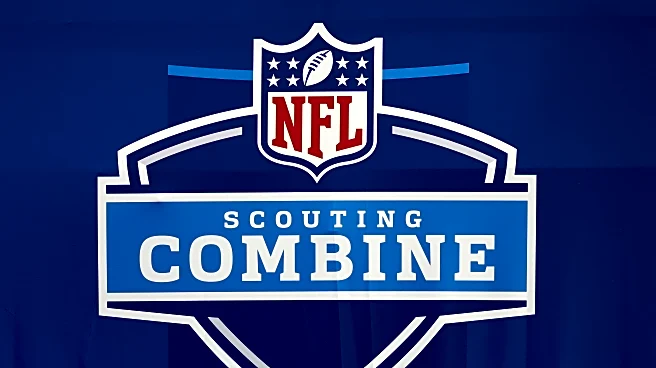What's Happening?
The NBA has confirmed that the 2026 All-Star Game will proceed at the Intuit Dome, home of the Los Angeles Clippers, despite an ongoing investigation into the team. The investigation centers around potential salary cap circumvention involving Clippers owner Steve Ballmer, player Kawhi Leonard, and the company Aspiration. Allegations suggest that Aspiration was used to pay Leonard outside of NBA salary cap rules, with Ballmer investing $50 million in the company. The NBA commissioner, Adam Silver, stated that the planning for the All-Star Game is independent of the investigation, and there are no plans to relocate the event. The All-Star Game, scheduled for February 15, 2026, will feature a new format with a United States vs. World setup.
Why It's Important?
The decision to keep the All-Star Game at Intuit Dome highlights the NBA's commitment to maintaining its event schedule despite controversies. This situation underscores the complexities of financial dealings in professional sports and the potential impact on team operations and league integrity. If the Clippers are found guilty of salary cap violations, they could face significant penalties, including fines, voided contracts, and loss of draft picks. The investigation's outcome could influence future league policies on financial transparency and team management.
What's Next?
The NBA's investigation into the Clippers' financial dealings continues, with potential consequences for the team if wrongdoing is confirmed. Stakeholders, including fans and other NBA teams, are closely monitoring the situation. The league may implement stricter regulations to prevent similar incidents in the future. The Clippers' management will likely focus on resolving the investigation while preparing for the All-Star Game and maintaining team performance.
Beyond the Headlines
This investigation raises broader questions about ethical business practices in sports and the role of external companies in team operations. It may lead to increased scrutiny of financial relationships between teams and third-party entities. The situation also highlights the importance of transparency and accountability in maintaining public trust in professional sports organizations.










